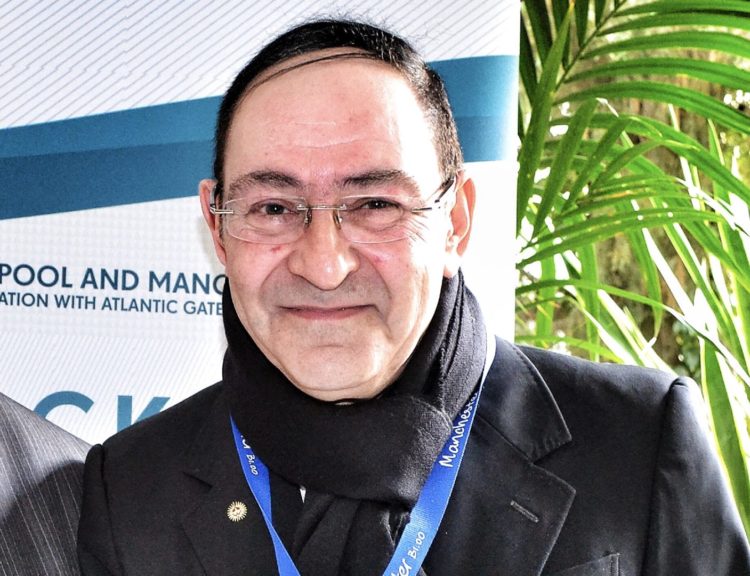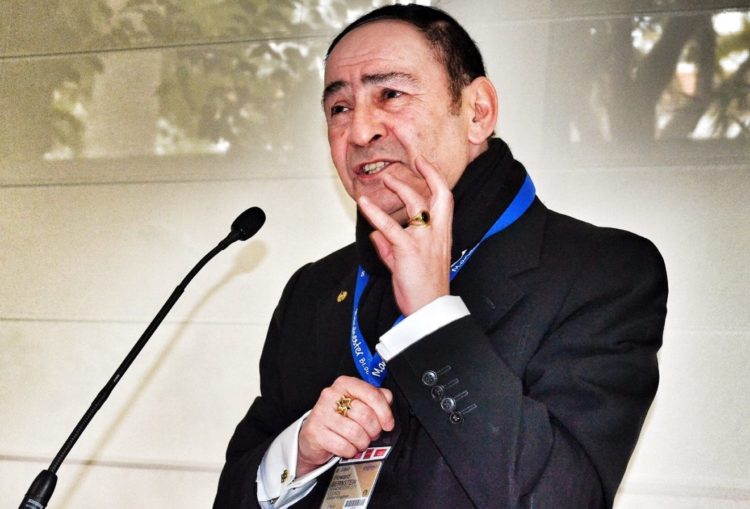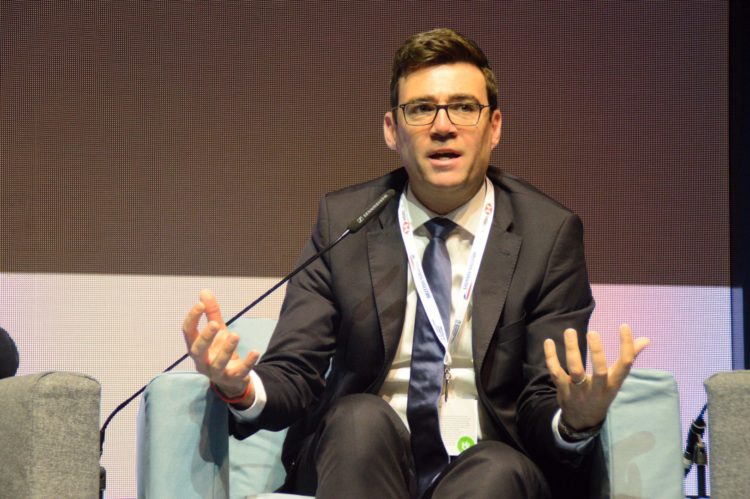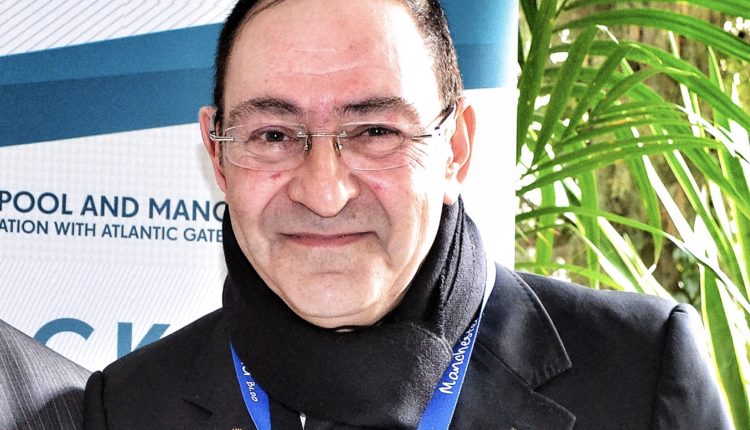One of the UK’s most inspirational civic leaders – Sir Howard Bernstein – dies aged 71 with tributes coming from far beyond his native Manchester. Tony McDonough reports

When the phrase ‘Northern Powerhouse’ was coined you would be forgiven for believing it referred to Sir Howard Bernstein.
On Saturday it was announced that Sir Howard, chief executive of Manchester City Council from 1996 to 2017 and the architect of its astonishing renaissance, had died aged 71.
His formidable partnership with long-time council leader Sir Richard Leese is now seen as a masterclass in urban regeneration. He took a city, devastated by an IRA bomb, and transformed it into an economic powerhouse.
In October 2022, Sir Howard was asked to bring some of that magic up the East Lancs Road to Liverpool. He accepted an appointment onto the Liverpool Strategic Futures Advisory Panel, led by Metro Mayor Steve Rotheram.
At the time of his appointment Frank McKenna, chief executive of Liverpool business lobby group, Downtown in Business, said: “He (Sir Howard) has an ability to see things that nobody else sees, long before it becomes obvious to everyone else. He has that kind of vision and I think that’s what we need.”
This weekend tributes were led by Manchester council leader Bev Craig, who praised his “incredible legacy”. She added: “Sir Howard served Manchester with remarkable distinction.
“He will be remembered as a driving force in the city’s turnaround from post-industrial decline to the growing, confident and forward-looking city we see today.
“He had boundless energy, strategic vision and a passion for Manchester. In 46 years at the council, serving as chief executive between 1998 and 2017, he played an integral role in the regeneration and economic growth of the city.”
Former Chancellor George Osborne, who worked closely with Sir Howard on the Northern Powerhouse, added: “So sad Howard Bernstein has died – one of the towering public servants of the last 50 yrs – the father of modern Manchester and my partner on the Northern Powerhouse.
“He showed everyone else what creative local government working with business can achieve.”
And Northern Powerhouse chief executive, Henri Murison, also said: “I will always be grateful to Sir Howard and remember him for his kindness to me from when I first met him and his relentless energy for changing the lives of others, across Greater Manchester and the North. My condolences to his wife and all his family.”
Growing up in Cheetham Hill, the then plain Howard Bernstein made a somewhat inauspicious start to his career in local government. He joined Manchester City Council as an 18-year-old office junior in 1971 on a salary of £500 a year. There was little sign then of what was to come.
He told the Manchester Evening News: “I saw working in the town hall as an interesting prospect. My first job was being given a big bowl of cups and being told to go and wash them. Which was a bit of a culture shock, because I’d never washed anything in my life.”
However by the late 1980s he was already making his mark. He was involved in the setting up of the Manchester Airports Group, now owner of Manchester, East Midlands and Stansted airports.
It brought together Greater Manchester’s 10 local authorities in a great spirit of cooperation.

In 1990 he became deputy chief executive of Manchester City Council. He championed the Manchester Metrolink system. When it opened it became the first light rail network to be built in a British city in more than a century.
It was in 1996 that Sir Howard took on the biggest challenge of his career. On Saturday, June 15, that year, the IRA planted a 3,300lb bomb in Corporation Street in the city centre. It caused £700m of damage and injured 212 people. Mercifully, no one was killed.
But the impact on the city was devastating. Sir Howard was appointed chief executive of the authority shortly afterwards and wasted little time in putting the city on the road to recovery.
Building a formidable partnership with elected council leader, Sir Richard Leese, he oversaw the extensive reconstruction of the city centre.
He also became chief executive of Manchester Millennium, a public/private sector task force. It delivered projects such as Piccadilly Gardens, Exchange Square and New Cathedral Street.
Well into the 21st century Sir Howard continued to blaze a trail. He was credited with the reform of healthcare in Greater Manchester. And it was the relationships he forged with Whitehall that proved instrumental in Greater Manchester’s devolution deal, signed in 2014.


On Saturday Greater Manchester Mayor Andy Burnham said: “All of us here in Greater Manchester are deeply saddened by the loss of Sir Howard Bernstein.
“It is no exaggeration to say that, without his vision and leadership throughout four decades of public service, our city-region would not be the place that it is today.”
And Sir Richard Lees also paid tribute after hearing what he described as the “devastating” news of Sir Howard’s passing. He said: “Howard was a friend and valued colleague for more than 30 years.
READ MORE: Iconic Liverpool clock tower to be torn down and rebuilt
“The last time I saw him, a couple of weeks ago, he was still enthusing about the next stages of regeneration in East Manchester, around Ancoats and the Etihad Stadium.
“Manchester is blessed to have had one of the great local government chief executives, someone whose drive, vision and energy was devoted to the city he loved. His impact on Manchester is unrivalled.
“He is a loss for Manchester and Greater Manchester but even more so for his family and my thoughts are with them at this sad time.”
Liverpool City Region Metro Mayor Steve Rotheram paid his own tribute. He said: “Few people can claim to have had a bigger role in shaping local government or the fortunes of a great northern city than Howard Bernstein.
“After decades overseing Manchester’s renaissance, it was a pleasure to have him join the Liverpool Strategic Futures Panel to help shape our work.
“His humour, wit, advice and boundless expertise were an enormous asset that will leave a lasting legacy in our region.
“May his memory be a blessing.”

